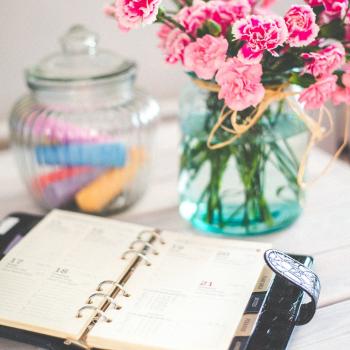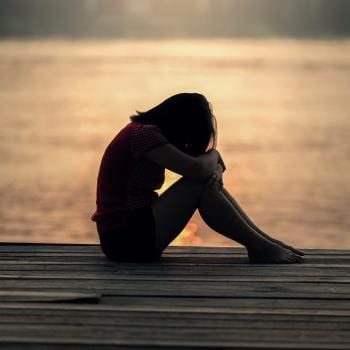How did you perceive your childhood at the time compared to how do you see it now?
Joe:
Coming soon.
At the time, I felt like a lot of things about myself were sinful—my sexuality, my negative feelings of frustration/anger, my opinions, and even my poor social skills. I genuinely wanted to have a deep relationship with God that would let me be satisfied no matter what my circumstances were. I believed that my challenges were God’s way of making me a better person, and I believed that God wasn’t giving me friends because he wanted me to depend completely on him. My journals from the time reveal the emotional rollercoaster I was on as I tried to be what God and my parents wanted me to be. In hindsight, it’s very clear that I was incredibly depressed and psychologically damaged, and it has taken me a long time to discover and accept who I really am.
About the community I was in: I thought that any failings of church families would be much worse and much more common among “worldly families”. I thought it was ok that Christians tried to hide their failings and crimes so that they wouldn’t dishonor God, and also because they believed that secular/liberal counselors and government workers shouldn’t interfere in the lives of God’s people. However, now I see that the movement promotes a culture that allows abuse with no recourse for the abused. Women and children are required to have a demeanor that invites abuse and then not allowed to do anything about it when it happens. I am horrified that movement leaders routinely give a one-size-fits-all answer to women and children with family troubles: “Submit more!” I feel terrible for the families who desperately needed professional help–kids who were physically abused by an alcoholic mother, a wife whose husband was sleeping with multiple partners, a family dealing with brother-sister molestation—and instead they got cookie cutter advice and were not encouraged to seek professional therapy and support.
When I was younger, I respected Reb Bradley as a godly church leader; now, I am incredibly frustrated that he continues to promote himself as an expert in family relationships without stopping to notice that his approach hasn’t worked out for the old Hope Chapel families or even for his own family.
As of when I went to college, I thought that how I was raised was perfect. I continued to think so through the beginning of college. I still held onto Christian Patriarchy/Quiverfull beliefs and planned to replicate my parents’ beliefs and lifestyle with my own life. It wasn’t until I started asking questions and the response I got that I started to wonder whether something was wrong. This process of sorting it all out took years, and is in some ways still continuing. Today I still think there were great things about my childhood – my parents were very involved, and we children were always working on some project or planning some escapade – but I also see problems. Looking back on my childhood, I see a strange mixture of good and bad.
Lisa:
I thought my childhood was normal or even special and I kind of looked down on kids who weren’t raised the way I was. I mean, after all my Dad knew the truth, theirs didn’t. We were on the safe side. I just kept wishing that I could be a better child. I felt like my parents did so much for me and tried so hard to make me a good person. Everything bad that happened I blamed on myself and shamed myself by thinking I wasn’t good enough for my parents. I used to think about all the great things we did, like baking afternoons with Mom or singing and reading and sitting together on quiet evenings, and I felt like I didn’t deserve any of that. I thought all the other kids had to be at home alone late at night and eat fast food and watch TV and I pitied them because they didn’t have a family (working Moms meant no family to me). I thought I was very lucky I had a “real” family.
Looking back, yes there have been great times, especially with my Mom and siblings. But there have been very, very dark days too. But I don’t like to look back and think “Oh, it was terrible” or “Oh, I had such a hard childhood”. That wouldn’t be entirely true. At the end of the day, there are so many worse things that could have happened to me. Of course it shouldn’t have been this way either. I guess I just don’t like excusing every mistake I make today by bringing up my childhood.
My childhood memories are sort of split into two parts: the time before we left CA and moved to VA was really happy, and I think, healthy. My memories of that time are probably fairly true to what that season was like. After we moved and got involved with the SGM church in VA, I was not unhappy with life, but my family wasn’t in a good place and I remember a lot of agonized prayers that I prayed over issues with fitting in, over trying to submit to my parents, over things that I felt overwhelming loads of guilt for. Looking back, I can now see how off-balance things were and that I took a lot of guilt onto myself for things that were out of my control, and that I was probably struggling with mild depression at certain points.
I had happy times and sad times. I loved playing with my siblings and participating in family life. I was also often sad and depressed. Then I attributed my feelings of sadness and restlessness to my lack of peace and contentment in Christ. I was sure that if I was just Godlier, more diligent or more obedient, then I would be happy. I now realize that nothing I could have done would have changed the way my family functioned at that time, and that I have the power to change my circumstances now in a way that I did not have then.
My childhood is a foggy blur to me. I have a few bright memories of good times, and few sharp memories of bad times. It’s my diary that tells the truest tale. I started journaling at around age 10, and going back over those pages reveals the truth. I was never really got to BE a child. It wasn’t until I was an adult that I was able to look back and realize that I had grown up much too soon.
When I was a little kid (up to age 10) I thought my life was pretty awesome. I had more free time than public-schooled kids, I had a beautiful woodsy backyard and lots of books to read. Church didn’t really sink in until I was 11 and got my period. Then I absolutely hated my life. I started listening to the apocalyptic stuff and the vicious condemnations of worldly women. I started realizing that I would be expected to submit to a man and be endlessly pregnant and that led me to think suicidal thoughts on a daily basis. I fantasized wildly about other planets where women were allowed to have lives and the Gods didn’t create people just to burn them alive for thousands of years. I was convinced I was a “vessel of destruction” destined for hell.
Now, I think my childhood crashed and burned at puberty. I think it’s because the prospect of womanhood in my church was so horrible, looked so much like slavery, that I would rather have died at 10 years old. I’m glad I didn’t, of course, because the other planets I dreamed about exist right here! But in retrospect, I would never live those years again.
Tricia:
Well, my childhood was all right. It was in my teen years that the dark clouds of CP/QF began to gather over my soul. 🙂 I think I recognized that some of it was silly and reactionary even at the time, but for the most part I was on board. I hoped that we were together ascending some sort of ladder of godliness. Now I look back and see it all as a time of gradual miring into lunacy and dysfunction that I am now trying to distance myself from.
<<< Previous Question ———————————— Next Question >>>














